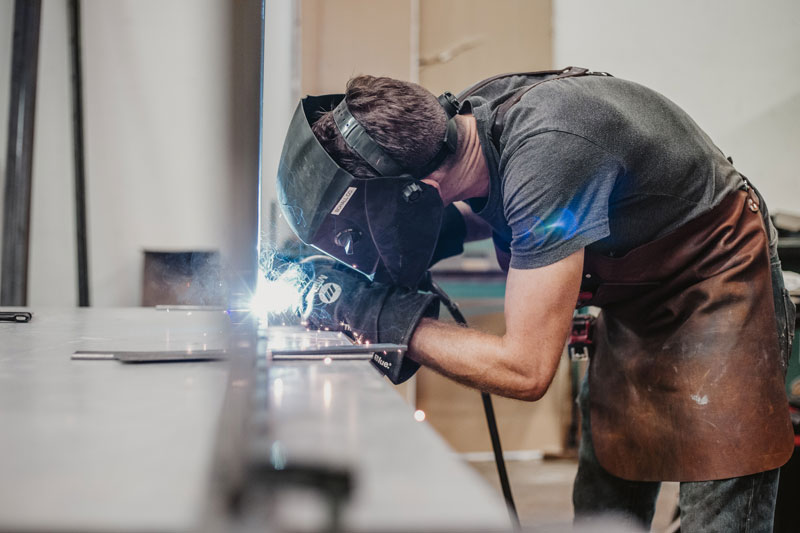The Use Of Stainless Alloys in Aerospace
One of the primary concerns in the aerospace industry is safety. When traveling at high speeds, whether on Earth or through space, there must be a complete assurance that everything about your vehicle will withstand the extreme conditions you are likely to encounter. For this reason, components aboard rockets and airplanes derive from materials that can handle frictional wear associated with deceleration.
Another critical factor in the safety of flying vehicles is that they have to have equipment with minimal mass so as not to disrupt the delicate balance of equilibrium. Stainless steel alloys are used in aerospace applications because they consist of many different types of metals. The addition of molybdenum, chromium, nickel, and manganese make these alloys resistant to heat and corrosion, which means that they are helpful in rocket engines, propeller blades, turbine blades, jet engine components, chemical processing equipment, and electrical appliances.
Safety Comes First for the Aerospace Industry
Aerospace engineers take their mission seriously by creating new technologies for innovative flying machines. They know how important safety is when traveling at high speeds and high altitudes. They also understand the importance of equipment having a low mass to maintain stability and equilibrium. Stainless steel alloys are a vital material for them to utilize due to the many benefits it provides.
The primary use of this alloy is in chemical equipment, such as pumps and valves, that deal with exposure to corrosive chemicals. It’s also a popular material for making surgical equipment, which requires sterilization. Another application for this alloy is in machine parts, such as bearings. These industries have unique requirements, and the aerospace industry is no different.
465 Stainless Alloys Are Always an Option
Consider 465 stainless alloy and its benefits. Alloy 465 is age-hardenable and improved fabricability compared to other alloys in this category. It also has superior resistance to stress corrosion cracking.
Compared to other steel types, such as carbon and alloy steels, stainless alloys have a relatively high fracture toughness and fatigue strength. That means that these alloys can withstand repeated loading and unloading without readily developing cracks or breaking apart. That’s vital for the stability and safety of airplane components such as turbine blades, compressor disks, and engine shafts.
Stainless Alloys Are Lightweight
The benefit of using stainless steel alloys in the aerospace industry is that they are lightweight, making it easy to maintain balance, lift and thrust while keeping safety standards high. In addition, this material will not corrode, rust, or oxidize when exposed to moisture and atmospheric conditions. It also has a very low thermal expansion coefficient, which will withstand high and low temperatures fluctuations.
Stainless steel alloys are essential in the aerospace industry due to their numerous benefits. Aircraft engineers strive for excellence when designing and building flying machines by prioritizing safety and efficiency. However, they know they must use corrosion-resistant materials such as stainless steel alloys to keep their products solid and sturdy.
Aerospace engineers utilize stainless steel alloys in airplane components such as turbine blades, compressor disks, and engine shafts. It helps maintain a safe balance while having a low coefficient of thermal expansion. That gives them the ability to withstand fluctuations in high and low temperatures.
Precision Alloy Services is a specialty metals distributor and processor located in Bowling Green, Ohio. Precision Alloy Services quality management system is certified to ISO 9001:2015 and AS9100 Rev D, and we carry a large inventory of materials including nickel, cobalt, aluminum and titanium alloys, stainless steels and specialty alloy steels in a variety of sizes of sheet, plate, bar, and wire. Processing includes bar sawing, water-jet cutting, chamfering and other services. Contact Us for more information.
Custom 455 Stainless Alloy | Custom 465 Stainless Alloy | Biodur 316LS Stainless, 316LVM, ASTM F138 Stainless | 17-4 alloy stainless steel, ASTM F899

